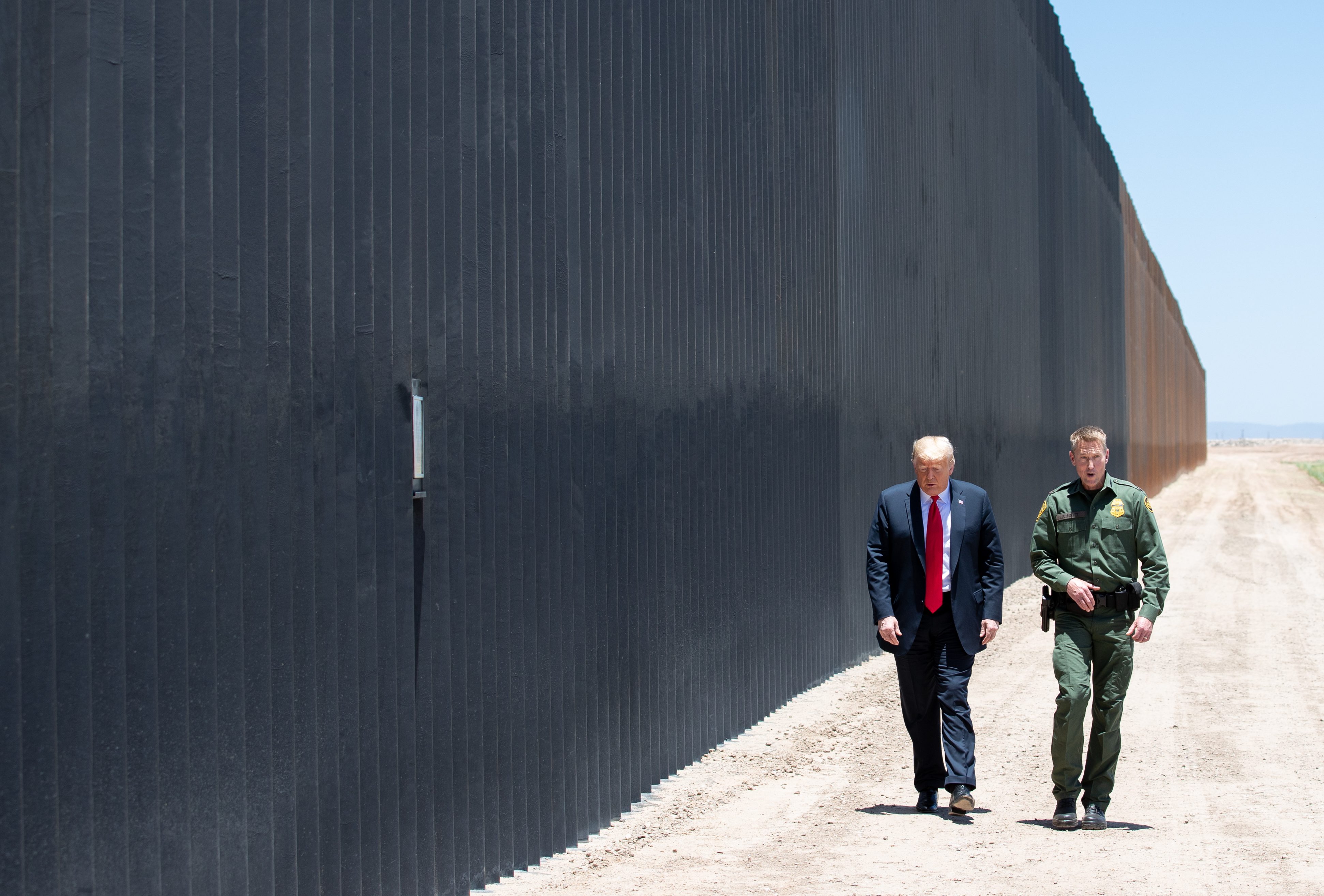By Darrell Dow
Donald Trump’s biggest applause line during the 2016 campaign was his promise to erect a wall along America’s southern border and make Mexico pay for it. Trump did not produce a slew of wonkish policy proposals, but he did provide a simple and workable remittance plan to fulfill his promise: require proof of lawful residence before allowing outgoing wire transfers to Mexico. Trump reckoned that threatening to restrict remittances would compel Mexico to make a one-time payment of $10 billion to pay for the wall.
“It’s an easy decision for Mexico,” Trump said in 2016. “Make a one-time payment of $5-10 billion to ensure that $24 billion continues to flow into their country year after year.”
The billions flowing out the U.S. economy into Mexico show just how vital remittances are to the Third World.
Remittances from the United States are a big chunk of Mexico’s economy. In 2013, they totaled $22 billion, and topped $31 billion in 2018 and $36 billion in 2019.
According to the World Bank, remittances to low- and middle-income countries reached a record high in 2018, up nearly 10% from 2017. Immigrants wired an estimated $148 billion to individuals in other countries. While Mexico is the largest beneficiary, China collects $16.1 billion, while India hauls in $11.7 billion. Remittances also boost the fortunes of Central America, ranging from 21.1 percent of El Salvador’s gross domestic product to 12.1 percent of Guatemala’s. One wonders why these regimes would work to thwart emigration to the United States.

Trump did not impose the proposed regulations by executive order, and legislation to tax remittances stalled in the Republican-controlled Congress.
Rep. Mike Rogers, R-Alabama, introduced the Border Wall Funding Act in 2017 that would have imposed a 2 percent tax on all person-to-person wire transfers to Mexico, Latin America and the Caribbean. A proposal in the Senate, which would have imposed a 7 percent fine if the sender could not prove that he is in the U. S. legally, never made it out of committee.
Why the federal government does not tax remittances and prohibit foreign nationals on welfare from sending cash home is one of the oddest phenomena in the immigration discussion. How often do politicians ignore a $150 billion pile of cash? Money flowing from the United States, whether to Mexico, China or the Philippines, does not support American truck drivers or waitresses and provides no benefit to local governments that frequently bear the cost of illegal aliens and their children.
Oklahoma provides an object lesson for how such a tax might work. All out-going, out-of-state, person-to-person transfers of money are charged a 1 percent fee. But here’s the thing. If the transmitter pays state income tax, he can deduct the fee as a tax credit, effectively refunding the fee. But state tax officials report that 96 percent of those fees don’t show up on tax returns for the credit, which means the revenue is taken from those who do not pay state income taxes. And who might that be?
The Cato Institute’s Alex Nowrasteh dismissively wrote that the fee raises a mere $133.65 per illegal immigrant — about $13 million — a supposedly insignificant sum. Perhaps it is, for Oklahoma. But it would not be for the nation as a whole.
Two years ago, a team of Yale and MIT researchers, led by Mohammad M. Fazel-Zarandi estimated that 22.1 million illegal aliens in the United States. The number could be as low as 16.5 million or as high as 29.1 million, the researchers reported. Assuming that remittances from those outside of Oklahoma are similar to Oklahoma residents and assuming 22.1 million illegal immigrants, such a tax would yield nearly $3 billion in revenue. Doubling the tax to a mere 2 percent increases the take to $6 billion. And even if only half of those illegals send remittances, the government would still bring in $1.5 billion to $3 billion.
For decades, the federal government has failed to protect the border. Politicians and Big Business have not only turned a blind eye to illegal immigration, thwarting the will of a majority of Americans who demand secure borders, but also encouraged the illegals to enter to the country. Taxing remittances would provide resources to accomplish the goal and shift the costs to immigrants, including those here illegally.
Taxing remittances will build the wall and provide money to pay for border security and enhanced internal enforcement.
What’s not to like?
Darrell Dow is a contributor to American Remnant whose work has appeared in Chronicles, A Magazine of American Culture.

Reblogged this on kommonsentsjane and commented:
Reblogged on kommonsentsjane/blogkommonsents.
For your information.
kommonsentsjane
[…] https://www.american-remnant.com/2020/08/15/trump-was-right-tax-remittances-pay-for-a-wall/ […]
[…] border wall must be finished and maintained. A small tax on remittances would provide the money for construction and maintenance and shift the cost to […]
[…] border wall must be finished and maintained. A small tax on remittances would provide the money for construction and maintenance and shift the cost to […]
[…] border wall, supported by the taxing remittances that immigrants send back […]